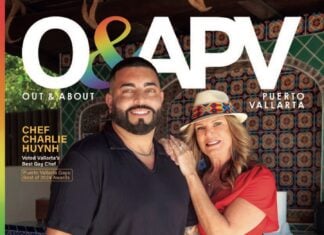Esta publicación también está disponible en: English Español
Jalisco Sate Congressional Deputy Sofía García (and president of the Equality Commission) explained that she and her party (PRI) is seeking to reform the articles; 258, 260 and 267 of the Mexican constitution. This in order to change the norm that establishes marriage as an act between a man and a woman.
“It’s a debt that the State owes to the community of sexual diversity, the Civil Code must be modified. Establish that marriage is a union between two people, because love is love and that is the most important thing,” she said.
Since 2016, the Supreme Court of Justice of the Nation declared that articles 258, 260 and 267 Bis of the Civil Code were discriminatory and invalidated them. From that date, the state Legislature has pending to make the modifications to the Code. Deputy Cynthia Guadalupe Pérez Rivera, presented, last May, an initiative on the same issue that is pending ruling.
“To comply with the ruling that the Supreme Court of Justice gave, of unconstitutionality of articles 258, 260 and 267. Which stipulates that the marriage is constituted by a man and a woman. We reformed it so that the phrase would remain two people, in this way, homosexual people will be able to get married simply by fulfilling the requirements and going to the civil registry, like any other couple.” Said Cynthia Guadalupe.
In 2015 was the last initiative to equal marriage in Jalisco. However, there was a court ruling and it did not prosper.
Same Sex Marriage in Mexico is a state-by-state decision. Most recently the Mexican state of Yucatán has legalized same-sex marriage and banned conversion therapy in a groundbreaking move.

In a four-hour session, Yucatán’s Congress voted 20-5 to pass a measure to legalize same-sex marriage. The bill modifies Article 94 of the state’s constitution to redefine marriage as any “free and voluntary legal union” between two people, according to the Spanish newspaper El País.
There are currently 22 states in Mexico that legalize same-sex marriage. The state of Sinaloa did so this past June and Baja California in early August. The Supreme Court ruling on the Yucatán law could mean that similar cases could be brought against the remaining 11 Mexican states that don’t allow same-sex marriage, according to Reuters.
Those states include Durango, Sonora, Tamaulipas, and Veracruz. They are expected to approve same-sex marriage by the end of this year, as the independent news publication People’s Dispatch reports.
An increasing number of countries in traditionally Catholic Latin America have legalized same-sex marriage. Gay couples can now marry in Costa Rica, Argentina, Ecuador, Brazil, Colombia, Uruguay and in some states in Mexico.
If you want more articles can you read here
Esta publicación también está disponible en: English Español













